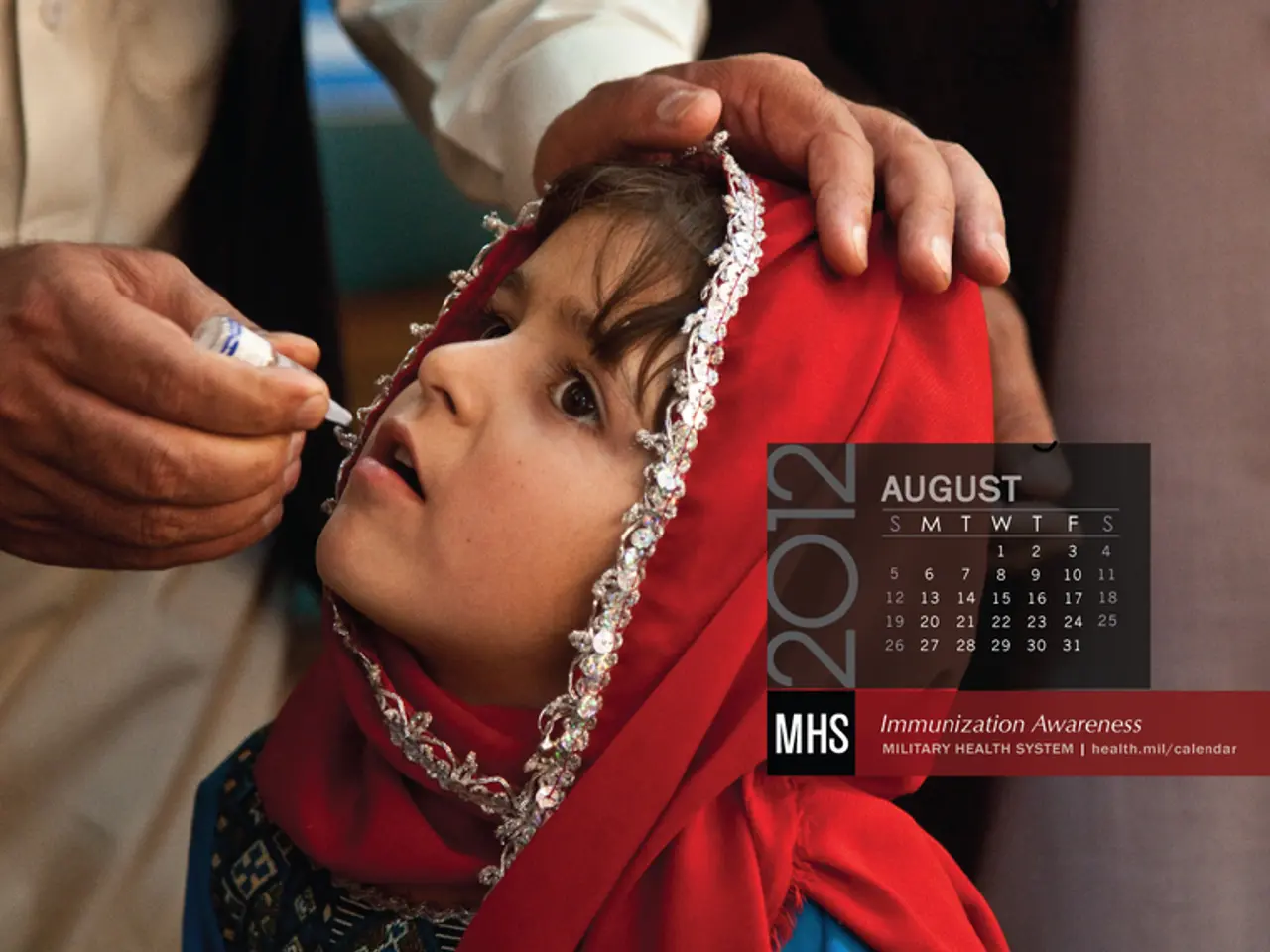U.S. Health Secretary Levels "Propaganda" Charge at Danish Vaccine Researchers
In a controversial move, US Secretary of Health Robert F. Kennedy Jr. has taken a notably skeptical stance on vaccines, leading to significant policy changes that reflect an anti-vaccine approach. Since taking office, Kennedy has removed and replaced key vaccine advisory members with individuals holding anti-vaccine views and has revived a childhood vaccine safety panel favored by anti-vax groups [1].
This skepticism has raised concerns among public health experts, who fear potential reductions in vaccine access and increases in disease outbreaks in the United States [1]. Kennedy has also drastically cut federal funding—about $500 million—for mRNA vaccine research, undermining pandemic preparedness according to experts [2][3].
In a separate development, a study conducted by researchers at Denmark's State Serum Institute (SSI) has reaffirmed the safety of Denmark's childhood vaccination program. In the study, SSI researchers used Denmark's national health registers to follow children born between 1997 and 2018, investigating the associations between aluminium-containing vaccines and conditions including asthma, allergies, autoimmune conditions, and neurodevelopmental disorders. The results of the study, first reported last month, found no association between aluminium in childhood vaccines and 50 different health conditions, including autism, asthma, and autoimmune diseases [4].
Interestingly, there is no publicly documented statement or stance by Kennedy on Anders Hviid’s vaccine research or related Danish scientific community studies. Anders Hviid, Head of Department at SSI and principal investigator on the study, stated that the study found "absolutely no indication" that the use of aluminium in childhood vaccines increases the risk of 50 different health outcomes during childhood [4]. Hviid also stated that "we can certainly stand by the methodological choices we've made" [4].
Kennedy, however, has criticized the Danish scientific community, calling their research on vaccines 'propaganda' [5]. He claimed a recent Danish study on vaccines is "so deeply flawed it functions not as science but as a deceitful propaganda stunt by the pharmaceutical industry" [5]. It's important to note that Anders Hviid, who is among the scientists directly criticized by Kennedy in the article, has called Kennedy's accusations "drastic" in comments to science publication Videnskab.dk [6].
Robert F. Kennedy Jr. was appointed as Secretary of Health by President Donald Trump after Trump returned to the White House in January. His appointment was met with criticism from doctors and health experts, who stated it was "an extraordinarily poor choice" given his previous health statements, many of which are not supported by scientific evidence [7].
References:
- The Hill
- The New York Times
- The Washington Post
- Trialsitenews
- CNN
- Videnskab.dk
- The Guardian
- Despite Secretary of Health Robert F. Kennedy Jr.'s criticism towards the Danish scientific community, a study by the State Serum Institute (SSI) found no association between aluminum in childhood vaccines and various medical conditions, including autism, asthma, and autoimmune diseases.
- In contrast to the controversy surrounding Kennedy's anti-vaccine stance, recent news on health and wellness indicates that science continues to progress in the field of technology, with ongoing research aimed at improving vaccine safety and efficacy.
- As public health experts express concern over potential decreases in vaccine access and increased risk of disease outbreaks in the United States due to Kennedy's policy changes, art may serve as a platform to engage the public in discussions about medical-conditions related to vaccines and health.




